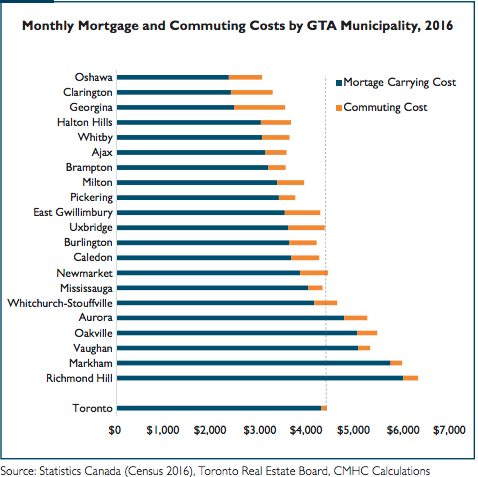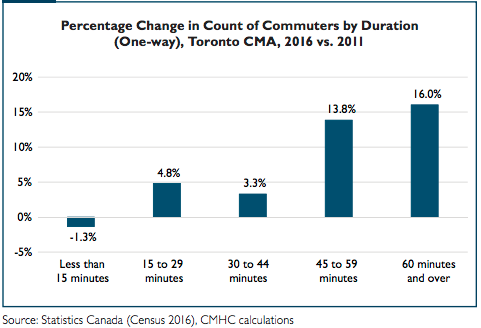Why a house in the 'burbs might not save you money after all

Homeownership in the Greater Toronto Area simply isn’t in the cards for a lot buyers hoping to get off the fence and into the market. These priced out shoppers are increasingly looking outside of the city limits, prompting a phenomenon known as “drive until you qualify.”
Canada Mortgage and Housing Corporation says a lower price of admission doesn’t necessarily mean moving to the suburbs will save you money though.
“By assessing the combination of commuting costs and housing costs one can gain a more comprehensive gauge of the total cost of location choices,” says Andrew Scott, Senior Market Analyst.
According to CMHC’s calculations, commuting costs mean lower-priced areas like Newmarket and Mississauga can end up costing more than the City of Toronto.
Naturally, commuting costs increase as you move further away from the city, but in places like Oshawa, much lower home prices keep the cost advantage intact.

A growing trend
CMHC says there were around 2.6 million commuters in the GTA, with 1.3 million of them commuting to work within the City of Toronto. A growing number of commuters are taking a car to work. 67 per cent from the 905 drive, while 21 per cent take public transit.
The fastest growing segment among commuters is those who travel more than an hour for work. That’s a clear sign people are moving further away from the big city.

Not just a Toronto story
A similar situation has been playing out in Vancouver, Canada’s second largest housing market. The Metro Vancouver Housing and Transportation Cost Burden Study found neighbourhoods that seem more affordable can actually cost more.
The average combined cost for housing plus transportation in Vancouver was $36,000 a year. Even though homes in Maple Ridge are far cheaper, the high cost of commuting brought the total to $39,000 a year.
Taking transit can cut down on commuting costs, but there’s also the time cost to consider. Commuters spend time on the road instead of at work making money. Time away from friends and family is harder to to put a price on.
Download the Yahoo Finance app, available for Apple and Android.

 Yahoo Finance
Yahoo Finance 